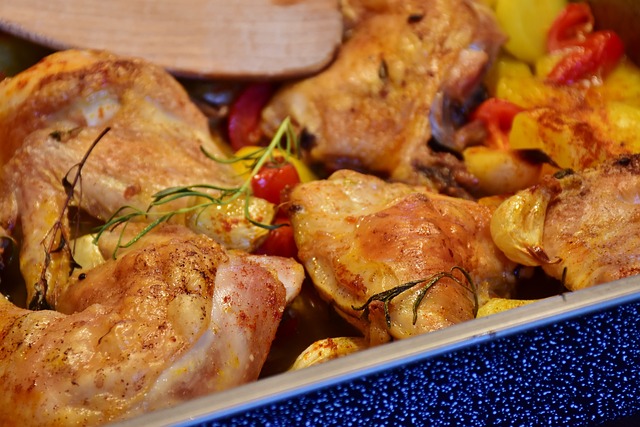The modern world is increasingly aware of the need for sustainable living, and one of the most impactful ways to contribute to this global goal is by thoughtfully preparing our meals. For solo diners, making meals for one can often seem a daunting task, often leading to food waste or reliance on convenience foods that carry a heavier environmental footprint. In this post, we’ll explore how to make sustainable meals for one, centring on three core ingredients – seasonal produce, legumes, and whole grains – that are both nutritious and good for the planet.
Why Seasonal Produce is Your Culinary Comrade
Seasonal produce isn’t just fresher and more flavourful; it’s also ripe with environmental benefits. Locally grown crops that don’t require long transport routes greatly reduce carbon emissions. Shopping at farmers’ markets or subscribing to a local CSA box can further reinforce this choice.
Spring summons tender greens and crisp asparagus. Summer dazzles with bursting berries and juicy tomatoes. When autumn arrives, reach for hearty squashes and earthy root vegetables. Wintertime? It’s the season for citrus and robust kale. Each season offers its own palette of flavours and opportunities for creativity in the kitchen.
The Hidden Gems: Legumes
Legumes, such as beans, lentils, and chickpeas, are champions of the sustainability cause. They require less water to grow and enrich the soil with nitrogen, reducing the need for chemical fertilisers.
A hearty lentil stew or a simple chickpea salad can provide a protein-rich meal with minimal environmental impact. Canned legumes are convenient for quick meals, but if you plan ahead, soaking and cooking dry legumes is even more economical and produces less packaging waste. Here’s a quick recipe to get you started:
Spicy Black Bean Tacos
- 1 cup cooked black beans
- 1 tsp cumin powder
- Salt and pepper to taste
- Corn tortillas
- Your choice of toppings: avocado, salsa, lettuce and a squeeze of lime
Heat the black beans with the spices, mash lightly if desired, warm the tortillas, and compile your tacos. It’s simple, customizable, and deliciously sustainable.
If you’re looking for another easy and flavorful recipe, consider trying out this chicken curry for one for a satisfying meal.
The Virtuous Whole Grains
Whole grains, like brown rice, quinoa, and oats, are not just shelf-stable options that reduce the likelihood of spoilage; they offer complex carbohydrates for energy and essential nutrients. Integrating whole grains into your daily diet contributes to long-term health and reduces the demand for heavily processed alternatives.
Buying in bulk can minimise packaging, and grains can be cooked in portions just enough for one, or in larger quantities to be repurposed over a week. Think along the lines of a warm morning oatmeal, a midday quinoa salad, or a cosy evening with a brown rice stir-fry. Always check for cooking instructions tailored to yield the best texture and flavour from each grain.
Minimising Waste in Your Solo Kitchen
With mindful shopping and preparation, reducing food waste is entirely achievable. Proper storage – like airtight containers and produce bags – can extend the life of your ingredients. If you find yourself with more fresh produce than you can consume, consider blanching and freezing for later use.
Leftovers can be repurposed into new meals, transforming last night’s cooked veggies into a vibrant frittata or stir-fry. Dedicate a day to kitchen creativity and use up those bits and bobs from your fridge and pantry. It’s a challenge that often leads to the most unexpected and delightful meals.
Conclusion
Cooking sustainable solo meals invites you to engage with your food more deeply, to respect the resources it took to grow your ingredients, and to nourish your body while caring for our earth. Whether you’re new to cooking for one or looking to refine your approach, take these tips, get experimental in your kitchen, and delight in the difference you can make.
We’d love to hear about your sustainable cooking adventures! What discoveries have you made? Share your stories and inspire us all to keep pushing the boundaries of what’s possible in our solo kitchens.
